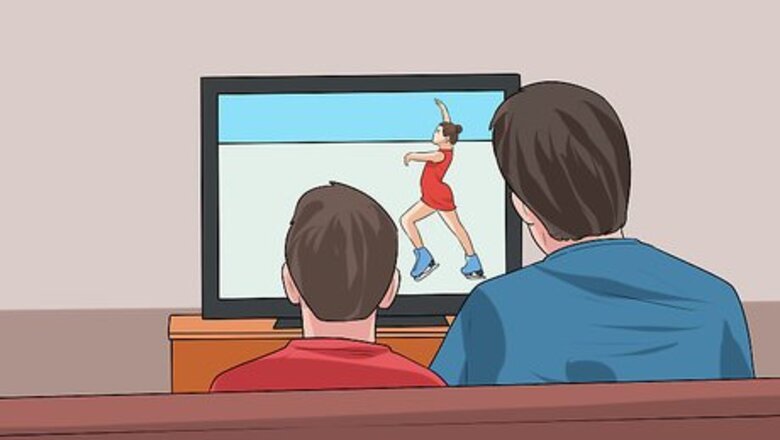
views
Developing the Right Skills
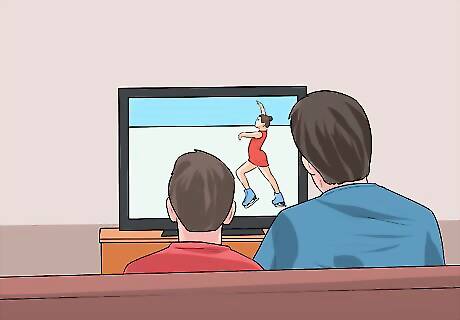
Expose your child to figure skating. If you want to motivate your child to learn how to skate, help get them excited about skating. Watch figure skating competitions on your television set. Have your child go to a local figure skating competition and watch other skaters. If you know another skater in your neighborhood, or a relative, have them talk to your child about figure skating.
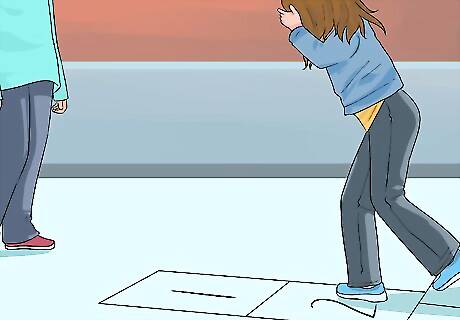
Encourage activities that help with agility and coordination. Figure skating requires a lot of coordination and agility. To help your child prepare to learn how to skate, encourage them to play games that help with these skills. The following childhood games can help your child learn to figure skate: Hopscotch Jumprope Skip to my Lou Twist and Shout Tight rope
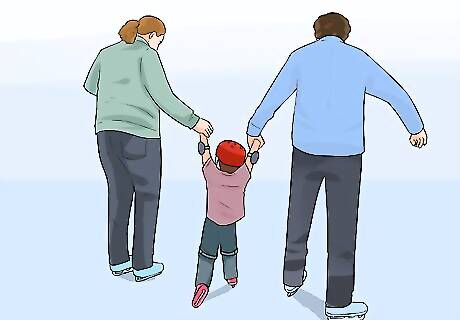
Skate together as a family. Take advantage of local ice rinks and go skating as a family. Start when your child is young. Bring them out on the ice and help them develop basic skating skills. Make sure to use proper equipment for safety. Your child should wear a helmet as well as knee, ankle, and elbow pads. A child who is just learning the skate is likely to fall a lot at first.
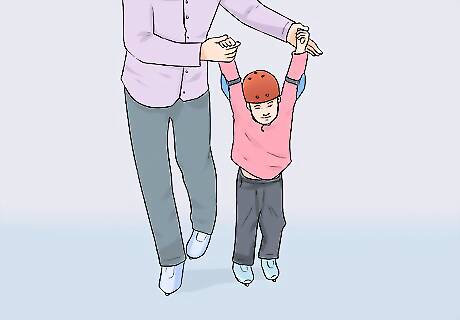
Start out by having your child walk on the ice. When your child first gets introduced to the ice, teach them to walk on it. This will help them gradually get used to the feel of ice and eventually build up to skating. Have them gently march on the ice, shifting their weight from one foot to another. At first, a child may only be able to march in place. Eventually, they should be able to move slightly across the ice. Practice walking backwards and forwards and side stepping. Once your child gets used to the feel of ice, you can encourage them to skate.
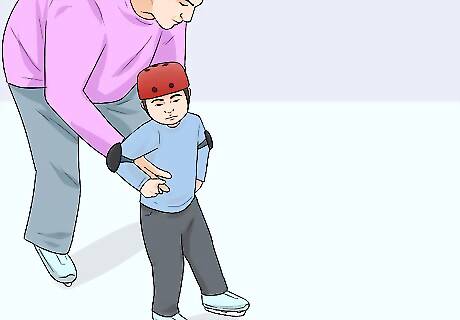
Practice basic skating moves. Once your child is comfortable walking, help them learn some basic skating moves. Have your child hold their hands in front as they push forward, moving them as if they're washing a table. This will help them maintain balance. Teach them to start slowly gliding on the ice. Have your child hold one blade sideways and push forward across the ice.
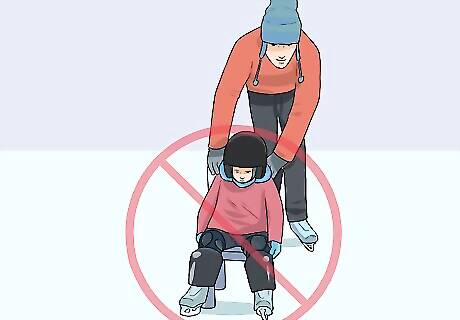
Avoid using chairs or similar devices. Many parents encourage their child to lean on chairs and slide them across the ice when they first begin skating. However, this encourages children to lean forward when they skate. In the long run, this can lead to bad habits that can make figure skating difficult. Avoid using chairs for support when introducing your child to basic skating moves.
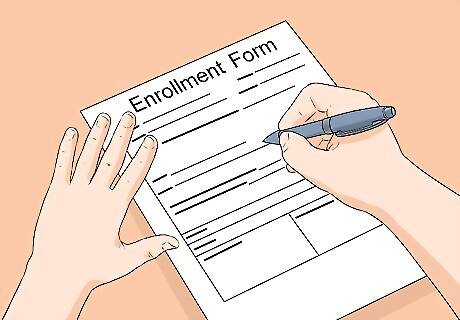
Enroll your child in other skill building classes. In addition to taking figure skating, look for other classes that build skills basic to skating. Gymnastics, roller blading, tumbling, and dance classes can all help your child get into figure skating. Make sure not to overwhelm your child with too many extracurricular activities. Let your child choose which activities interest them and do not force them to take a course they dislike.
Beginning Figure Skating Classes
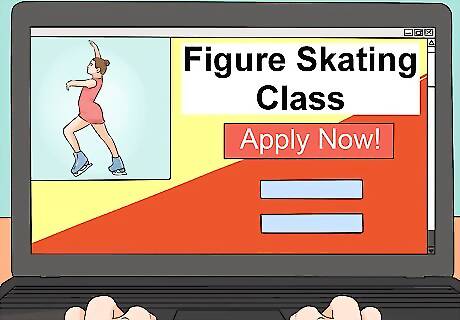
Find classes in your area. Figure skating requires specific skill sets and patient teaching. It's best to find a professional to teach your child figure skating. Look for ads in the local paper or search online. You can also keep your eye out at community centers or local schools. If you know parents whose children figure skate, ask them to direct you to local teachers.
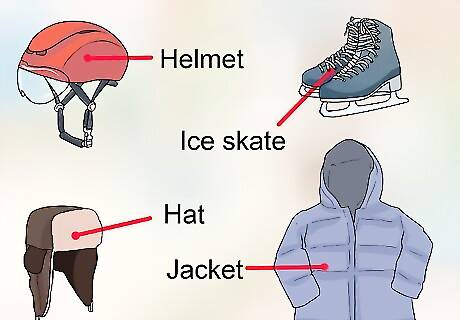
Get the right gear. Before your child starts lessons, make sure you get the right supplies. You will have to spend a little money to get your child started on figure skating, but remember this can be a lifelong hobby that can encourage physical activity and raise your child's self esteem. Get a helmet. This is vital for your child's safety on the ice. Get a solid pair of skates. Go to a skate shop and have your child fitted by a professional. The right skates can help your child figure skate successfully. Make sure your child has things like a jacket and hat to keep warm. It can get cold out on the ice, especially if your child is skating at an outdoor arena.
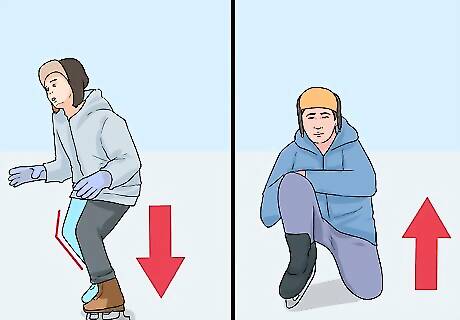
Help your child with falls. Your child will fall on the ice. It's important you teach your child how to fall to minimize injury. Let your child know to bend their knees to one side when they feel they're falling. This will help them fall gently. To get back up, instruct your child to kneel on both knees. Then, have them move one leg upward until their blade is flat on the ice and then push themselves up.
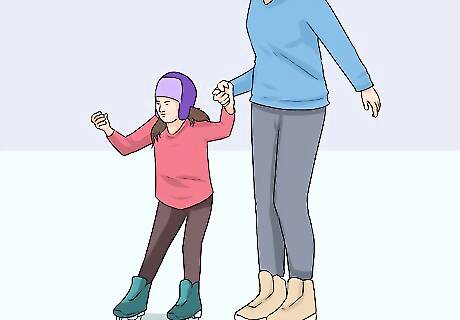
Practice with your child. Regular practice is important. If your child is slowly improving, they will enjoy figure skating more. Practicing with your child will help them feel enthusiastic about skating and they'll find themselves improving. Remember, your child should not use a chair for support. To help with falls, skate near your child instead of using a chair. Hold the child gently under your arms to help support them as they learn to skate.
Encouraging Figure Skating Long Term
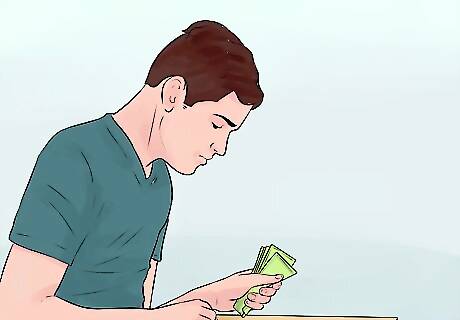
Be willing to splurge a little. If you want your child to be invested in a hobby, keep in mind it's a financial investment as well. You do not need to overspend on top notch equipment, especially if you can find solid skates secondhand. However, budget each month for things like lessons, new skates, and other expenses.
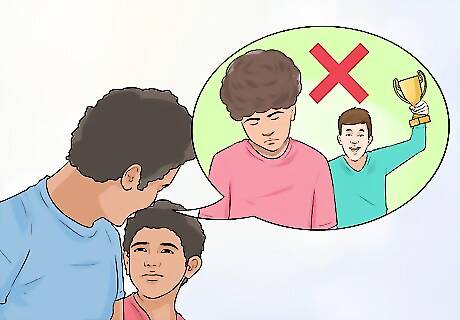
Explain that winning is not everything. Make sure your child is invested in figure skating for the right reasons. While participating in competitions can be fun, a child may stop enjoying the sport if there's an overemphasis on winning. Talk to your child about how they should figure skate for their own enjoyment. Tell your child winning does not make them successful. Say something like, "Have fun in the competition, but remember your goal is to improve yourself personally. I'll be proud of you even if you don't win."
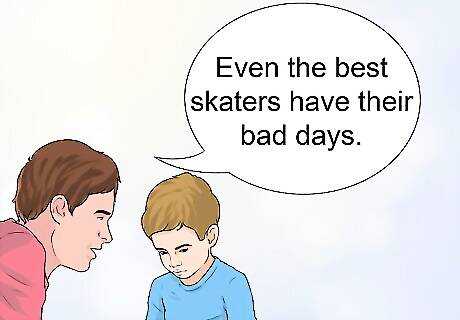
Handle setbacks with grace. Figure skating comes with a lot of tests and competitions. Your child will sometimes not perform as well as they want. Encourage them to see setbacks as an opportunity to learn and grow. For example, say your child does not pass a figure skating test. Say something like, "This is a good thing. You know where you need to improve and you can do great next time." Remind your child it's okay that they're not perfect. Say something like, "Even the best skaters have their bad days."
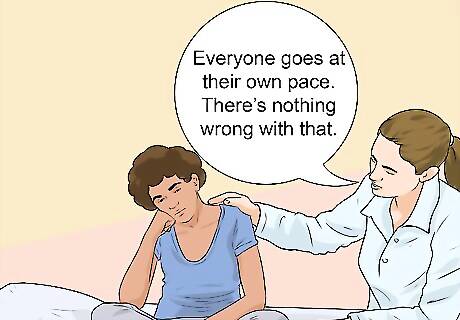
Do not compare your child to others. Figure skating can get competitive. Never compare your child to another skater. If your child compares themselves to a peer, say something like, "Everyone goes at their own pace. There's nothing wrong with that."












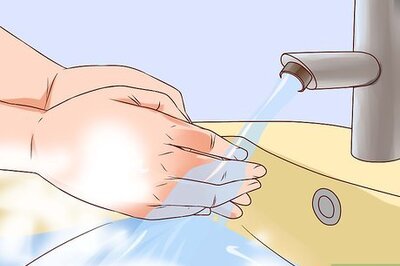
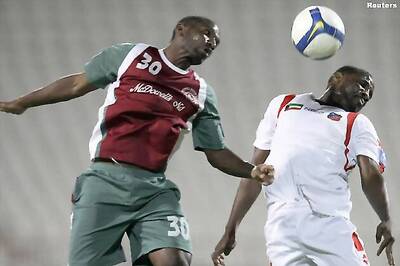
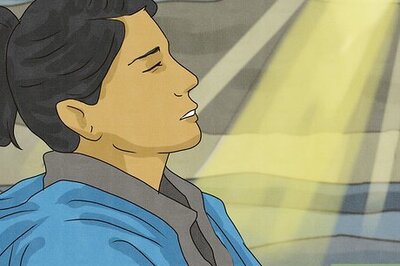
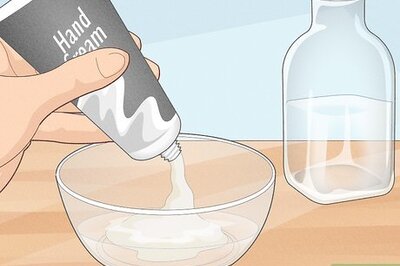


Comments
0 comment